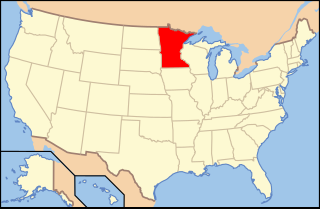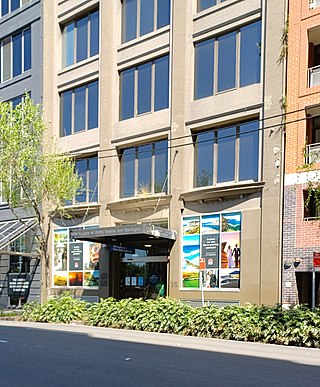The legal status of transgender people varies greatly around the world. Some countries have enacted laws protecting the rights of transgender individuals, but others have criminalized their gender identity or expression. In many cases, transgender individuals face discrimination in employment, housing, healthcare, and other areas of life.

Name change is the legal act by a person of adopting a new name different from their current name.
A domestic partnership is an intimate relationship between people, usually couples, who live together and share a common domestic life but who are not married. People in domestic partnerships receive legal benefits that guarantee right of survivorship, hospital visitation, and other rights.
A marriage certificate is an official statement that two people are married. In most jurisdictions, a marriage certificate is issued by a government official only after the civil registration of the marriage.
Same-sex marriage has been legal in Australia since 9 December 2017. Legislation to allow it, the Marriage Amendment Act 2017, passed the Australian Parliament on 7 December 2017 and received royal assent from Governor-General Peter Cosgrove the following day. The law came into effect on 9 December, immediately recognising overseas same-sex marriages. The first same-sex wedding under Australian law was held on 15 December 2017. The passage of the law followed a voluntary postal survey of all Australians, in which 61.6% of respondents supported legalisation of same-sex marriage.

Oklahoma Question 711 of 2004, was an amendment to the Oklahoma Constitution that defined marriage as the union of a man and a woman, thus rendering recognition or performance of same-sex marriages or civil unions null within the state prior to its being ruled unconstitutional. The referendum was approved by 76 percent of the voters.
Alex MacFarlane is an Australian activist who is an intersex person born with XXY sex chromosomes in Victoria. MacFarlane is believed to be the first holder of an indeterminate birth certificate and passport.
Same-sex marriage has been recognized in Montana since a federal district court ruled the state's ban on same-sex marriage unconstitutional on November 19, 2014. Montana had previously denied marriage rights to same-sex couples by statute since 1997 and in its State Constitution since 2004. The state appealed the ruling to the Ninth Circuit Court of Appeals, but before that court could hear the case, the U.S. Supreme Court struck down all same-sex marriage bans in the country in Obergefell v. Hodges, mooting any remaining appeals.

Lesbian, gay, bisexual, and transgender (LGBT) people in the U.S. state of Minnesota have the same rights and responsibilities as non-LGBT people. Minnesota became the first U.S. state to outlaw discrimination based on sexual orientation and gender identity in 1993, protecting LGBT people from discrimination in the fields of employment, housing, and public accommodations. In 2013, the state legalized same-sex marriage, after a bill allowing such marriages was passed by the Minnesota Legislature and subsequently signed into law by Governor Mark Dayton. This followed a 2012 ballot measure in which voters rejected constitutionally banning same-sex marriage.

Lesbian, gay, bisexual, and transgender (LGBT) people in the Australian state of New South Wales have most of the same rights and responsibilities as non-LGBT people.

Lesbian, gay, bisexual, and transgender (LGBT) people in the U.S. state of Wisconsin have many of the same rights and responsibilities as heterosexuals; however, the transgender community may face some legal issues not experienced by cisgender residents, due in part to discrimination based on gender identity not being included in Wisconsin's anti-discrimination laws, nor is it covered in the state's hate crime law. Same-sex marriage has been legal in Wisconsin since October 6, 2014, when the U.S. Supreme Court refused to consider an appeal in the case of Wolf v. Walker. Discrimination based on sexual orientation is banned statewide in Wisconsin, and sexual orientation is a protected class in the state's hate crime laws. It approved such protections in 1982, making it the first state in the United States to do so.
Discrimination against non-binary people, people who do not identify exclusively as male or female, may occur in social, legal, or medical contexts.

W v Registrar of Marriages [2013] HKCFA 39; FACV 4/2012 is a landmark court case for LGBT rights in Hong Kong. In a 4:1 decision, the Court of Final Appeal gave transgender people the right to marry as their affirmed gender rather than their assigned gender at birth.

Marriage in Australia is regulated by the federal government, which is granted the power to make laws regarding marriage by section 51(xxi) of the constitution. The Marriage Act 1961 applies uniformly throughout Australia to the exclusion of all state laws on the subject.

Lesbian, gay, bisexual, and transgender (LGBT) people in the Australian state of Tasmania have the same legal rights as non-LGBT people. Tasmania has a transformative history with respect to the rights of LGBT people. Initially dubbed "Bigots Island" by international media due to intense social and political hostility to LGBT rights up until the late 1990s, the state has subsequently been recognised for LGBT law reforms that have been described by activists such as Rodney Croome as among the most extensive and noteworthy in the world. Tasmania imposed the harshest penalties in the Western world for homosexual activity until 1997, when it was the last Australian jurisdiction to decriminalise homosexuality after a United Nations Human Rights Committee ruling, the passage of federal sexual privacy legislation and a High Court challenge to the state's anti-homosexuality laws. Following decriminalisation, social and political attitudes in the state rapidly shifted in favour of LGBT rights ahead of national trends with strong anti-LGBT discrimination laws passed in 1999, and the first state relationship registration scheme to include same-sex couples introduced in 2003. In 2019, Tasmania passed and implemented the world's most progressive gender-optional birth certificate laws. In July 2023, the Tasmanian government officially included and also added "asexual or asexuality".
Transgender rights in Australia have legal protection under federal and state/territory laws, but the requirements for gender recognition vary depending on the jurisdiction. For example, birth certificates, recognised details certificates, and driver licences are regulated by the states and territories, while Medicare and passports are matters for the Commonwealth.

Multiple countries legally recognize non-binary or third gender classifications. These classifications are typically based on a person's gender identity. In some countries, such classifications may only be available to intersex people, born with sex characteristics that "do not fit the typical definitions for male or female bodies."

Intersex rights in Australia are protections and rights afforded to intersex people through statutes, regulations, and international human rights treaties, including through the Sex Discrimination Act 1984 (Cth) which makes it unlawful to discriminate against a person based upon that person's intersex status in contexts such as work, education, provision of services, and accommodation.

Intersex people in Germany have legal recognition of their rights to physical integrity and bodily autonomy, with exceptions, but no specific protections from discrimination on the basis of sex characteristics. In response to an inquiry by the German Ethics Council in 2012, the government passed legislation in 2013 designed to classify some intersex infants as a de facto third category. The legislation has been criticized by civil society and human rights organizations as misguided.

Civil registration in Australia of births, deaths and marriages as well other life events is carried out and maintained by each state and territory in Australia, in an office called a Registry of Births, Deaths and Marriages. It is compulsory in each jurisdiction, though the procedures and information recorded varies between jurisdictions. Access to information on the register is restricted by period or relationship, and is usually provided at a fee in the form of certificates. Nowadays, certificates can also be ordered online, and will be posted to the applicant, often with some delay.












